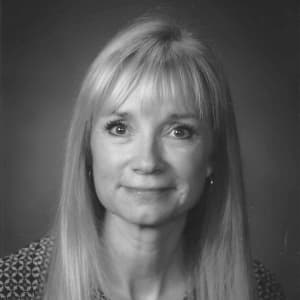Ask a Nurse: Am I Too Old for Nursing School?
 Credit: ER Productions Limited / DigitalVision / Getty Images
Credit: ER Productions Limited / DigitalVision / Getty ImagesIn our Ask a Nurse series, experienced nurses provide an insider look at the nursing profession by answering your questions about nursing careers, degrees, and resources.
Question: I’m in my late 40s and am considering returning to school to become a nurse. Am I too late in the game to start nursing school at my age?
Answer: As healthcare employers increasingly seek out nurses with at least a bachelor’s degree, more mid-career RNs have begun to contemplate returning to nursing school. Take a look at any online nursing forum and you’ll notice how common it is for nontraditional students to question whether they are “too old” to begin a nursing program or complete a nursing degree.
Brett Dobratz, a perioperative nurse, worked as a research biologist before raising a family and earning her nursing degree in 2017. She shares her firsthand experiences about the challenges confronting older nursing students. Adult learners often find that their previously earned college credits may be outdated or unaccepted. They must juggle family responsibilities with demanding class schedules and adjust their finances to pay for school. “Negotiating these hurdles can be difficult, time-consuming, and sometimes discouraging,” warns Dobratz.
Despite these challenges, Dr. Deborah Hunt, associate dean and professor of nursing at Mercy College, stresses that “age is just a number” and “students of all different ages successfully complete the nursing program and transition to their professional practice roles.”
Below, Dobratz and Hunt offer anecdotal experiences and advice about how older nursing students can successfully navigate these challenges as they earn their degree.
Challenges Adult Learners Face When Completing a Nursing Program
Fitting In as a Nontraditional Learner
Hunt argues that “nontraditional students may face multiple challenges, although they also have many strengths.” Many nursing programs use an educational model that accommodates the traditional college demographic of students under the age of 25, based on full-time attendance and a sequenced schedule of coursework and labs. Consequently, older nursing students may face challenges fitting in. Not only do they struggle with financial, work, and family responsibilities, they may lack test taking skills and feel inadequately prepared to use new technologies
Nontraditional learners achieve the most success by facing their challenges and learning to use their own strengths as assets. Dobratz shares how she felt eagerly accepted and valued for her maturity. “My instructors and fellow students relied on me for my steadfastness and perseverance. Please do not cheat the school and students of all that you have to offer.”
Finding the Time and Money as an Adult Learner
Time management and money issues often discourage nontraditional students from achieving their educational goals. Paying for nursing school poses a particular obstacle for many older students. The second half of a baccalaureate requires intensive and time-consuming clinicals and labs. Working students should plan to leave their employment while they complete this crucial part of their training.
The length of time it takes to earn a bachelor’s in nursing depends on factors including full- or part-time attendance and the number of accepted prerequisites and other previously earned credits. Dobratz recalls that “even though my first bachelor’s degree was in microbiology and disease pathology, my nursing school made me retake microbiology for a cool $2,500. I also had to take classes specific to the university for another $4,000. The unknown costs and unplanned absences from work and family can be difficult to absorb for nontraditional students.”
Older nursing students should investigate all sources of available financial aid, including grants, scholarships, federal and private loans, and loan repayment programs.
Working While in Nursing School
[three] days per week and an additional day of 6-8 hours of clinical. In general, for every credit/clock hour of theory/didactic the student should expect to complete at a minimum an additional [two] hours of reading, writing, and studying.”“Employment during these years is almost impossible,” Dobratz says. “My class was told to discontinue any employment during our final year. I was glad I did.” Older students, especially those with families to support, may have to take out loans. A growing number of schools offer prior learning assessments that award credit for previous work experience.
Am I “Too Old” To Start a Nursing Program?
Many nontraditional students mistakenly view their age as a deterrent keeping them from fulfilling lifelong dreams of a nursing career. Dobratz began her nursing degree in her early fifties but worried about being too old and unable to keep up. Despite these initial fears, she took on the challenge, enrolling in the most difficult class first — human physiology.
—
“I quickly realized that what I lacked in agility, I made up for in perseverance, maturity, and study skills. We are never too old to start a new chapter. I received the highest grade in that class and almost every class throughout my education. I graduated from nursing school when I was 56 years old.”
Dobratz’s major concerns centered on neglecting her family responsibilities. However, these doubts disappeared as she progressed through her degree. Her perseverance has inspired her children to achieve their own academic aspirations. “They have also come to me for advice concerning study skills, teacher relationships, and academic technology,” she says. “I feared I would cheat them and instead enriched their view of education and pursuing dreams.”
What to Expect From a Nursing Program as an Adult Learner
Dobratz and Hunt caution nontraditional students about the rigorous and relentless workload required in most nursing programs and the toll this pressure can place on their personal lives. Brett explains that “the first two years of a four-year bachelor’s degree program are relatively easy to weave into an adult life. These classes are mostly in-person or online.”
After that, the logistics become more challenging. As students progress through a fixed curriculum of theory and didactic coursework, clinicals, and labs, they must maintain a constant and persistent level of commitment and focus. Most nursing schools advise students to limit their outside employment, especially in the last two years of training.
Nontraditional students with non-nursing college degrees may qualify for an accelerated second-degree nursing program that enables them to complete their nursing education in two years or less once they fulfill prerequisites. However, expectations remain high for all nursing students whether enrolled in traditional or online RN-to-BSN programs and especially at the graduate level in traditional or online master’s programs and doctorate degrees.
Older students should expect to attend classes and labs throughout the week and spend several hours a day working in supervised clinical settings. They must also budget additional time for general studying, completing readings and assignments, and preparing for tests.
Hunt cautions older students to develop strategies to balance work, school, and family life, arguing that “time management and organization are vital in addition to engaging in a program of self-care and health and wellness promotion. Having a strong support system of family, friends, and peers will also be quite helpful.”
Meet Our Contributors

Brett Dobratz began her career as a research biologist and transitioned into research administration. She worked at the National Institutes of Health, Eastern Virginia Medical School, and the University of Arizona Medical School. She left academia to become a full-time mother to three children. When her youngest entered school, Brett resumed her education to pursue an additional bachelor’s degree in nursing. During her schooling, Brett worked for a small business, managing their social media, website, graphic production, media relations, and advertising.
Brett graduated from nursing school in 2017 and is employed as a perioperative nurse in an ambulatory surgical center — Plastic Surgery Associates of Tulsa. Her responsibilities include patient care, operating room management and accreditation, and medical staff administration. She holds a bachelor of science in microbiology and disease pathology from Virginia Tech and a bachelor of science in nursing from Oral Roberts University in Tulsa.

Dr. Deborah Hunt is an associate dean and professor of nursing at Mercy College. She is the academic leader for the nursing programs that serve a diverse group of students and a fellow in the New York Academy of Medicine. She was also the interim dean of the School of Nursing and Health Professions at the College of New Rochelle (CNR). Deborah’s background includes critical care, administration, hospital-based education, and academic education. Prior to her appointment as interim dean, she was a tenured associate professor.